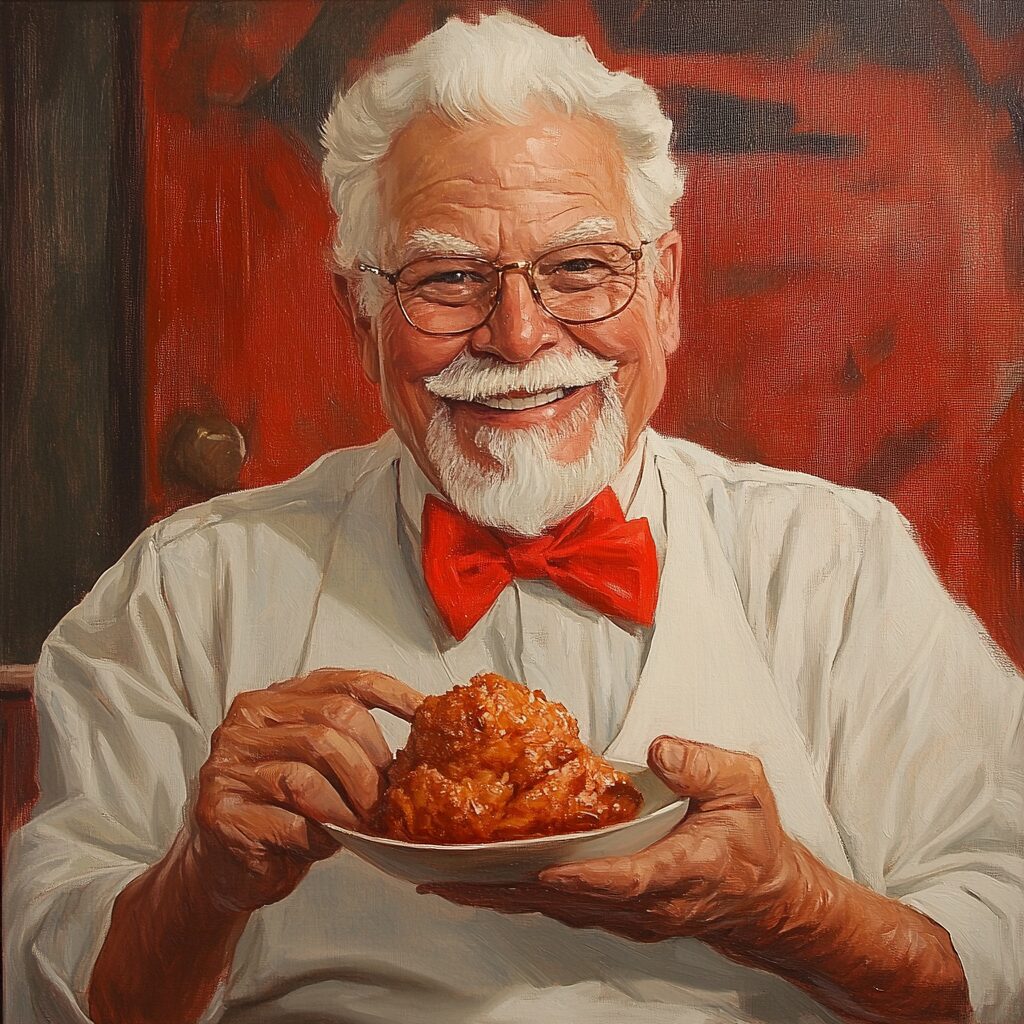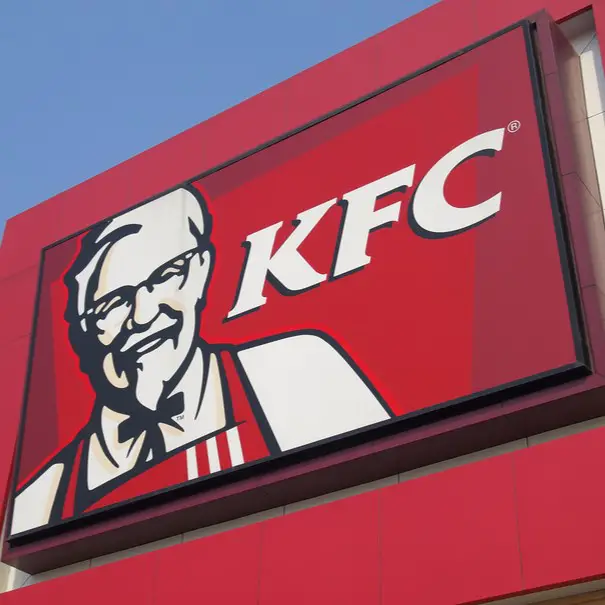When you think of KFC, the first things that come to mind are probably the Colonel’s secret recipe and that iconic red bucket. But behind the crispy exterior lies a world of controversy that would make even the most dedicated fried chicken fan pause mid-bite. From genetically modified poultry rumors to stomach-churning hygiene practices, KFC has weathered its fair share of storms. These scandals have not only shocked customers but also reshaped the way we view fast food giants. So, grab your napkin and get ready to dig into the juiciest, most shocking KFC scandals that have rocked the fast-food world.
1. The Mutant Chicken Mayhem

In 2014, KFC found itself at the center of a bizarre scandal that would make even sci-fi writers raise an eyebrow. Rumors spread like wildfire across China, claiming that KFC was serving up mutant chickens with extra legs and wings. The story was so outlandish that it sounded like something out of a B-grade monster movie. But in the age of social media, even the most absurd tales can gain traction.
KFC didn’t just sit back and let these rumors fry. They took action, launching a full-scale lawsuit against the Chinese tech firms that allowed these false claims to proliferate online. It was a bold move that showed just how seriously the company took its reputation. The lawsuit wasn’t just about clearing KFC’s name; it was a statement against the spread of misinformation in the digital age.
The mutant chicken saga didn’t just ruffle feathers; it had real-world consequences. Some customers, genuinely believing they might be biting into a genetically modified monstrosity, steered clear of KFC altogether. The company had to work overtime to reassure the public that their chickens were just regular old birds, not something out of a mad scientist’s laboratory. This scandal highlighted the power of rumors in the fast-food industry and the lengths companies must go to protect their brand in the face of outlandish claims.
2. The Great Chicken Shortage of 2018
Imagine craving your favorite fried chicken, only to find that KFC has run out of its main ingredient. That’s exactly what happened in the UK in 2018, in what became known as the Great Chicken Shortage. Over 600 KFC branches across the country were forced to temporarily close their doors due to a massive supply chain failure. It was a crisis that left customers both baffled and hangry.
The cause of this poultry predicament? A change in KFC’s delivery contract to DHL, which proved disastrous. Suddenly, the company famous for its chicken found itself scrambling like… well, like a chicken with its head cut off. The shortage wasn’t just an inconvenience; it was a full-blown PR nightmare that had customers questioning the company’s competence.
But KFC didn’t let this crisis clip its wings. In a stroke of marketing genius, they turned the fiasco into an opportunity. They ran a cheeky ad campaign featuring an empty chicken bucket with the letters rearranged to spell “FCK” – a not-so-subtle nod to the expletive on everyone’s lips. This self-deprecating humor, combined with a sincere apology, helped to soothe ruffled feathers and even earned the company praise for its crisis management skills.
3. The Expired Meat Scandal in China

In 2014, KFC’s reputation in China took a nosedive when a TV journalist exposed a shocking practice at one of their Shanghai suppliers. The report revealed that workers were mixing fresh meat with expired products, essentially serving up a recipe for food poisoning. This wasn’t just a case of cutting corners; it was a full-blown health hazard that sent shockwaves through the fast-food industry.
The fallout was immediate and severe. Sales for Yum! Brands, KFC’s parent company, plummeted by 16% in China. It wasn’t just about lost revenue; it was a massive blow to consumer trust in a market that KFC had worked hard to dominate. The scandal highlighted the risks of rapid expansion and the importance of maintaining strict quality control across global supply chains.
KFC’s response was swift but the damage was done. They cut ties with the supplier and implemented new food safety measures, but rebuilding trust proved to be a Herculean task. This scandal served as a wake-up call not just for KFC, but for the entire fast-food industry in China, prompting increased scrutiny and tighter regulations. It’s a stark reminder that in the world of fast food, quality control can make or break a brand’s reputation.
4. The “Fried Rat” Fiasco
In 2015, KFC faced one of its most bizarre and stomach-churning scandals yet. A customer in Los Angeles claimed he had been served a deep-fried rat instead of chicken. The story spread faster than grease on a paper bag, complete with photos of the offending “rat” that looked suspiciously like a oddly-shaped piece of chicken.
Social media exploded with reactions ranging from disgust to disbelief. KFC found itself in the unenviable position of having to prove that it wasn’t serving up rodents alongside its famous recipe. The company took the unusual step of inviting the customer to have the “rat” DNA tested, confident in their product’s poultry provenance.
As it turned out, KFC’s confidence was well-placed. Independent lab tests confirmed that the mysterious meat was indeed chicken, not rat. While KFC was vindicated, the incident showed how quickly a false claim could spiral out of control in the age of viral social media. It also highlighted the challenges fast-food chains face in maintaining public trust when every customer has the power to broadcast their complaints to the world.
5. The Colonel’s Alleged Racism Controversy

In 2018, KFC found itself embroiled in a scandal that reached back to its very foundations. John Schnatter, the founder of rival chain Papa John’s, alleged that Colonel Sanders, KFC’s iconic founder, had used racial slurs. This accusation wasn’t just an attack on a long-dead businessman; it was a potential blow to the entire brand identity of KFC.
The Colonel’s family swiftly came to his defense, vehemently denying the allegations. They painted a picture of Sanders as a man who treated everyone with respect, regardless of race. The controversy sparked a heated debate about the legacy of historical figures in modern branding and the responsibilities of companies in addressing problematic pasts.
KFC found itself in the awkward position of defending its founding figure while also distancing itself from any potential racist behavior. The company had to walk a fine line between honoring its heritage and acknowledging the changing social landscape. This scandal forced KFC, and many other brands with historical figureheads, to reckon with how they present their history in a more socially conscious era.
6. The Raw Chicken Nightmare
In 2019, KFC faced a scandal that struck at the very heart of its business: the quality of its chicken. A customer in Australia shared photos of raw, pink chicken she had received from a KFC restaurant, sending shockwaves through social media. The images were a far cry from the golden, crispy pieces KFC is famous for, and they raised serious questions about the company’s food preparation practices.
The incident wasn’t just a one-off mistake; it highlighted potential systemic issues in KFC’s kitchen operations. Customers were left wondering how such a fundamental error could occur in a restaurant chain built entirely around cooking chicken. The scandal tapped into broader concerns about fast food safety and the potential risks of eating out.
7. The PETA Crusade
KFC’s relationship with animal rights organization PETA has been anything but peaceful. Since the early 2000s, PETA has waged a relentless campaign against KFC, accusing the company of cruel practices in its chicken farming and processing. This ongoing battle has been a thorn in KFC’s side, challenging its image and forcing it to defend its practices publicly.
PETA’s tactics have been provocative and headline-grabbing. From celebrity-led protests to graphic undercover footage, the organization has pulled out all the stops to bring attention to what it sees as KFC’s ethical failings. These campaigns have not only put pressure on KFC but have also raised broader questions about the ethics of fast food and industrial farming practices.
KFC has responded to these criticisms by touting its animal welfare policies and working with animal welfare experts. However, the ongoing nature of this conflict shows how difficult it can be for a fast-food giant to satisfy the demands of animal rights activists while maintaining its business model. The PETA campaign against KFC serves as a reminder that in today’s world, food companies must be prepared to defend not just the taste of their products, but the ethics behind them as well.
As we’ve seen, KFC’s journey has been far from smooth sailing. From mutant chicken rumors to raw meat mishaps, the company has faced a veritable buffet of scandals that would give any PR team indigestion. Yet, somehow, the Colonel’s legacy soldiers on. These controversies serve as a stark reminder that even the mightiest fast-food empires aren’t immune to the occasional slip-up – or in some cases, a full-on face-plant into the mashed potatoes. So the next time you bite into that crispy drumstick, remember: behind every piece of perfectly fried chicken, there might just be a juicy scandal waiting to be uncovered. Keep your napkins handy, folks – it’s a messy world out there in fast-food land!

